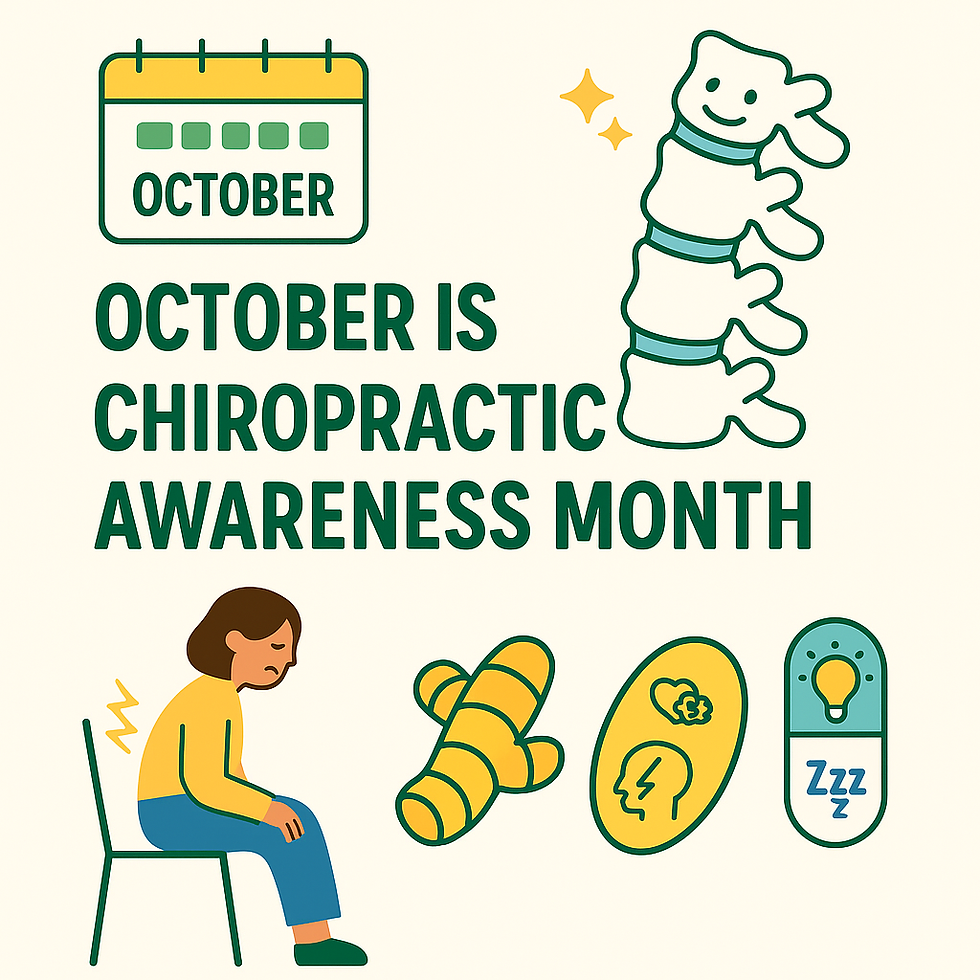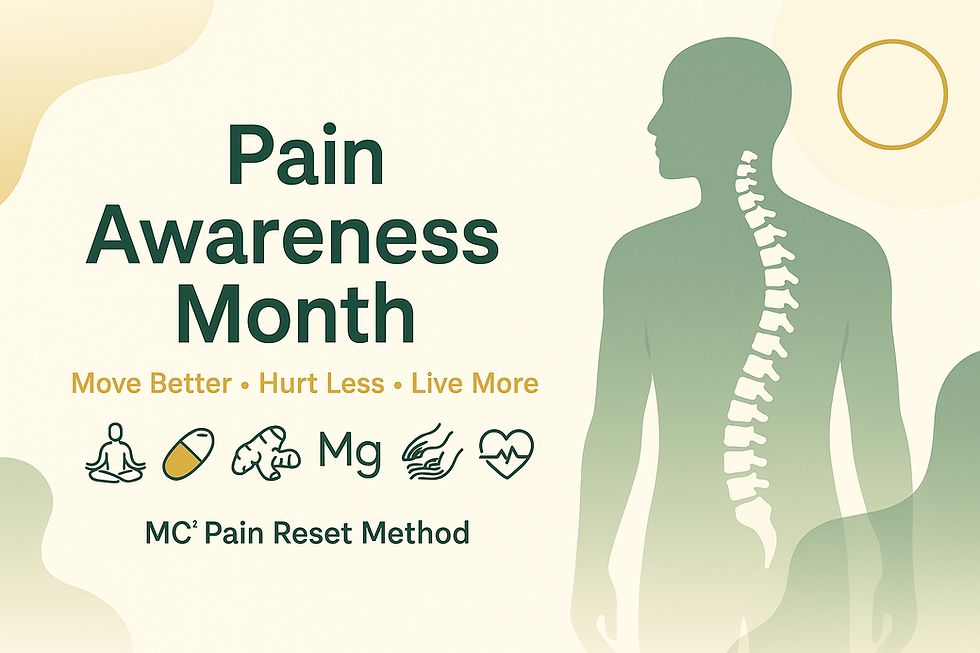What's the Risk? How to Predict, Prevent and stop chronic disease.
- Feb 10, 2022
- 6 min read
Updated: Sep 6, 2023
**Transcript**
Hi everybody. Dr. Julie McLaughlin here from McLaughlin Care and it's Functional Medicine Friday. So this week, what we're going to be talking about is gambling with your health. We want you to be able to know what risks are possible that are coming your way that we could predict. And more importantly, prevent. Now, some of you may already have some of these risk factors and conditions that have already started to show up in your lifetime. And we want to try to correct those as well. So remember our goal is to prevent, predict and correct any of these chronic issues.
We always look at labs. We look at a really comprehensive panel with the labs, which looks at our physiology. But there's more to us than just our physiology because the labs are great, but we also need to know some other numbers. When we look at risk assessments, a traditional risk assessment is called the Framingham risk assessment, and we want to improve upon that by looking at a bunch of other things. In our practice we do a big variety of assessments on our patients. So we of course look at gender, age, smoking, and blood pressure. Those are the typical things that you see in the Framingham risk study. But we also look at BMI percent body fat subluxations immobilities in the spine, how you move, if you have an inflexibility, your waist to hip ratio, if you're having anterior head posture, your strength and your waist measurement, as well as the McLaughlin risk health assessment.
And many of you are my patients so you've had this risk assessment done when you first came in. But what we're going to do today is we're going to go through each and every question over the next four weeks of Functional Medicine Friday to take a little deeper dive on each one. So there's 20 questions total in the risk assessment so each Friday we're going to go through five and do a little deep dive. So if you want to take the risk assessment on our website in full, or you want to have somebody in your family take it, I'll put a link in the bottom of the video, in the description box.
So let's start with the first one. Do you have a family history of early cardiovascular disease? So what that means is if you have a male relative, that's had any kind of cardiovascular disease before the age of 55 or a female relative, that's had a cardiovascular disease before the age of 65, this would be a risk factor for you.
Now, when I talk about cardiovascular disease, that means heart attack, stroke, super high cholesterol, any of those type of things are going to be a huge risks. If you don't have anybody in your family, that's had this, then you're not going to have this risk. But if you have a family member with later onset heart disease, you're going to have a risk. If you have just one side of your family, you're going to have a risk. And if you have it on both sides of your family, you're going to have a double risk. And if you have multiple generations, that's the highest risk of all out of all our risk factors. This is the biggest risk factor. They have someone have early onset heart disease, cardiovascular disease.
And if someone dies early, so if you have someone in your family who died from heart disease, maybe a heart attack before 55 or a male, or before 65 for a female that doubles the risk of cardiovascular disease in you. And if someone in your family had that event occurred before the age of 35 it's 10 times the risk. So this is something we want to be aware of because heart disease will be always on our bucket list to make sure we're monitoring to see where you are and predict it and prevent it. And there's a lot of things we can do, naturally with lifestyle and nutrients to help control this. But the most important thing is knowing about it.
So our number two risk factor is, do you have bleeding gums or gum disease? You think, What the heck, what kind of risk factor is that? I thought only dentists talked about that. But if you do have bleeding gums or gum disease and you never floss your teeth and your gums bleed or hurt, and your teeth are sensitive. That doubles or triples your risk of a heart attack or stroke. So bleeding gums and gum disease is a direct link with heart disease. So if you or someone in your family has this again, we want to look at those labs. We want to be able to predict why you are having these bleeding gums? And what is it doing to your cardiovascular system?
What about sleep? We know a lot of people have trouble with sleep and sleep is super important. It is one of our foundational needs as human beings. But if you're sleeping 7 to 8 hours a night, you're good to go. If you sleep, but you're restless for six to eight hours, you're okay, but not as good, obviously. If you're sleeping less than seven or more than nine, then we got an issue. If you're sleeping less than five and have poor quality or less than four, even if it's good quality. All of those are risk factors. And they are four times increased risk for diabetes and obesity if you're sleeping less than seven hours a night.
There's also an increased risk if you're sleeping more than nine hours a night. So you want in that sweet spot between seven and eight hours a night, if you want to lose weight while you sleep, and decrease your risk for diabetes.
Now the next one is, Do you snore? So if you're not sleeping those seven to eight hours a night and you snore, you're going to have a double whammy. If you don't snore, you're good on this, but maybe your husband or your wife snores like a Buffalo and you didn't know this, but this is one of the highest risk for cardiovascular disease and hypertension or high blood pressure. So snoring causes more of a risk of cardiovascular disease than smoking or obesity.
Isn't that unbelievable snoring is worse than being overweight and smoking. So any kind of snoring, I want you to make sure you're getting checked. Get a sleep study done to make sure you're not having sleep apnea. If someone in your family has sleep apnea, I want you to get this checked because sleep apnea not only can be caused by weight gain, or just obstruction, but the shape of your face and the shape of your throat that you were genetically born with can attribute to sleep apnea and many people. So we want to know if other people in your family have this issue as well.
The fifth question we're going to talk about today. Is does anyone or you have auto-immune diseases. So autoimmune diseases are diseases where our body attacks our own immune system. So do you have rheumatoid arthritis or Celiac's disease or a thyroid condition called Hashimoto's or psoriasis or lupus or any other inflammatory or auto immune disease?
So if you do, even if you're taking medication to control it. It's still increases your risk of heart disease by 40%. So we want to be that much more vigilant on checking your blood, looking and seeing what we can predict and what we can prevent. The symptoms sometimes can be debilitating on these diseases, even in people who are taking medication.
Now if you don't have the disease yourself, but someone in your family does this risk still applies to you. So those are the five questions for today. So I want you to know, we put those questions along with your blood work, because that's going to tell us what is your history risk and what it is in your physiology risk.
How do we change those risks? Eat better, move better, think better and sleep better. And we pick each one apart and make a personalized plan for you. In our office, we do the risk assessment. We do your blood pressure. We look at your body composition and your posture. We look at core flexibility and core strength as well as a blood test. And that gives us a really good picture of where you are now and where we want to go with your health in the future.
That's it for Functional Medicine Friday, I will see you next week.





Comments